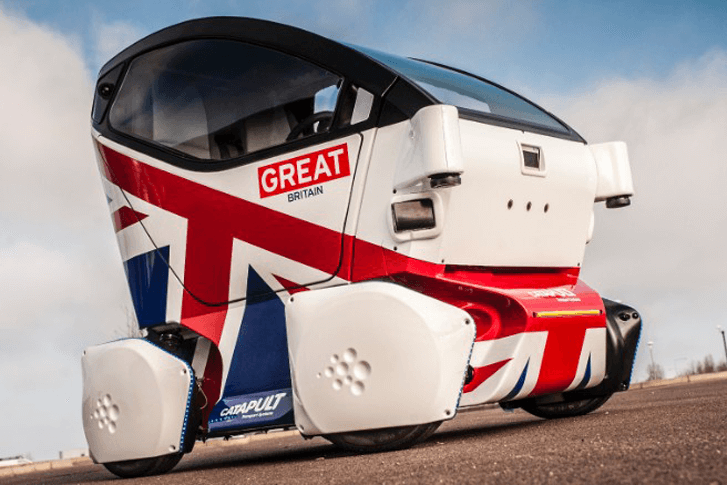
The UK has finally decided to get into the modern era of mobility with driverless cars but what if the rules and regulations are not compatible with the most modern technologies where police will not be able to check the driving licence of computers, they won’t be able to charge them for over speeding, and if this will be the case, why will we need traffic police anymore?
UK has decided to take the first step towards laws for autonomous cars.
If we talk about the current situation, it is just like if you try to run Windows 95 on Intel Core i7 which makes no sense. UK has 1930s rules in place for traffic with timely amendments as necessary, but the entire traffic laws package revolves around the human interaction from behind the wheel. Now when they about to go driverless, there is a serious need for new rules and regulations.
The UK is becoming a test platform for the autonomous vehicles after California where Google is testing its driverless car and adjacent technologies since 2009. There are number of driverless car projects underway with tens of millions in funding on these projects. UK has several rules to test the research work on the public streets to encourage the testing and trials. Under these rules, research and development work simmering very nicely and Government has decided to shift on the next step by making the rules to assure the compatibility of new technology with their system.
The Government has finally set out its plans to upgrade the UK system to welcome the driverless cars. The new age of mobility is on our door-step and soon we will be enjoying, texting, snoring or even watching movies while driving.
All these acts are prohibited by law these days. Last week, Government launched an open discussion to look how the UK will welcome driverless technologies and how they will tweak the regulations to assure the compatibility with the system. All these are waiting inclusion in the Modern Transport Bill or MTB.
Insurance and liability will definitely be the first and the most imperative rules and one of the top priorities of the government as well because we won’t be able to buy driverless cars without proper and appropriate insurance policies. It is one of the most complex issues too. It is the question of liability too, after the recent Tesla crash involving the autopilot technology in the USA.
In this crash, the owner was killed while he was watching a movie on board according to the driver of the tractor-trailer which was also the victim of crash. The Liability was the only word on the tip of the tongue of people after that crash that who will be liable?
In a scenario where all vehicles are fully autonomous, for example, it’s easy to blame manufacturers for any issues that result in a collision. In a situation where the autonomous vehicles will be in the lead and you won’t be able to get any car with drivers, autonomy will be a ramp.
There are already number assistive technologies in action in the modern vehicles like self-parking features, autonomous braking, lane keeping and departing system which was one of the difficult tasks to do when driving on the busy motorways like the M25 or the London orbit. These technologies are largely involved in easing the driving process. Autopilot is the other factor, that is trying to spare the driver by 100 percent in the future where drivers will not be necessarily in direct control of the vehicle.
As we are about to evolve from the traditional modern era of mobility where you do not need to pass any driving tests and hire any instructors for taking classes and there will not be ‘P’ or ‘L’ on the cars at all because the computer who will control the cars will be expert enough to drive.
Our roads in coming years will be home to mishmash of modern technologies that could put a question mark on liability as well. It will be even tougher to assume or deduce the liability especially when the driver will be out of the loop.
It is expected that the government will put forward a fairly common-sense based framework to drive the discussions out of the box. According to these common sense framework, they will try to make the drivers liable when they will be using the assistive technologies incorrectly. Drivers will be held responsible in either way if their own fault or they found using the technologies incorrectly. On other hand, technologies will be held responsible for their faults, but how? It’s very clear, a manufacturer will be on the hook for developing the faulty technologies.
The government is also expecting the insurance companies and manufacturers to cook up agreements to share the risk. The unforeseeable conditions like an accident in the case of car hacking by someone else will make the things even complicated. But at last, the manufacturers will reduce the liability for technological faults.
Currently, the number of laws in the Highway codes and regulations prohibit the technologies like self-parking system. The rules like, “the driver must be in the car if the engine starts” it clearly means that it is illegal to control a car through a mobile device. See, there are many problems with the current system. So the amendments to welcome the new technologies are necessary.


